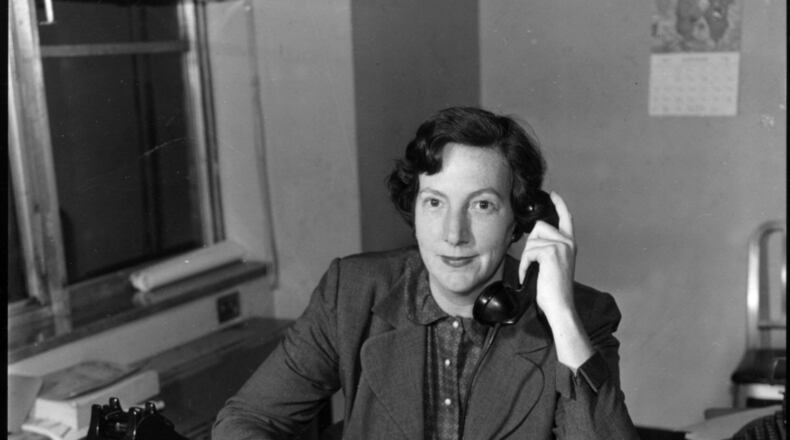Editor’s Note: This column appeared in the combined The Atlanta Journal and The Atlanta Constitution of Nov. 28, 1968.
A blind Negro woman from Georgia, visiting her brother in Indianapolis, may be one of America’s most thankful people on this day of national thanksgiving. Mrs. Mary Mullins will be in Indianapolis thanks to the generosity of members of the Communications Workers of America union, who financed her jet flight in appreciation of her work as a volunteer speaker for the United Appeal.
Her late husband was a steel worker and a union member and Mrs. Mullins spoke at six union rallies and eight unionized industrial plants. The other day I called her to wish her happy Thanksgiving and bon voyage and I found her in a high state of excitement.
“I’ll be thinking of you, too,” she said graciously, ” hoping you’re eating turkey and that wherever I am I’ll be pulling back on an old turkey bone, too!”
Blinded in her youth by illness, Mary Mullins has never felt sorry for herself for a minute nor allowed blindness to handicap her. She took some courses from the Community Services for the Blind a few years ago and since that time she has been getting around town on foot and by bus, taking a hand in all kinds of civic, charitable and church projects. Mayor Ivan Allen named her a “Good Neighbor” this year because of her work in getting people registered to vote.
“I just stood at the door of Grady Hospital and caught them when they were leaving from seeing the doctor,” she told me. ‘I couldn’t fill out the forms for them. A secretary did that. But I asked each and every one if they was registered and if they’d vote. I told them it was a heap easier for them to get to vote than it was for me when I started 20 years ago. In those days you had to go down to the courthouse and answer 20 out of 30 questions right. Now it’s just a form to fill out and they have help for that.”
The chance to fly to Indiana to see her only brother is a big “thankful” on Mary Mullins’ list.
“Mama had six children,” she recalled, “but she only raised two, my brother and me. He was the oldest and I’ll never forget the day he left home in Rockmart to go to Indianapolis. We went down to the train to see him off and I couldn’t do nothing but cry.”
The brother, now 74 years old, worked for a railroad in Indianapolis. His wife is dead, his only son is a teacher in a college in Milwaukee and he has remained close to his Georgia sister.
“I don’t know what kind of Thanksgiving he’s got planned,” she said, “but whatever it is we’ll have a good time. If he wants me to cook dinner I can do it. It’s no trouble to learn somebody else’s kitchen if you put your mind to it. And we’ll be thankful together for the good lives we’ve had and the good peoples in this world.”
Divisions between the races distress Mrs. Mullins. It’s un-Christian, she feels, to let the words “white” or “black” affect ones attitude in dealing with “God’s child, a human person.”
“That’s one of the things I’m most thankful for,” she said. “The state of Georgia is a good place and it’s got good people, white and black, that don’t have to always observe colored as colored and white as white. It’s one of the things I’ll be telling people I see in Indianapolis.”
Celestine Sibley was a longtime columnist for the AJC
About the Author
Keep Reading
The Latest
Featured


